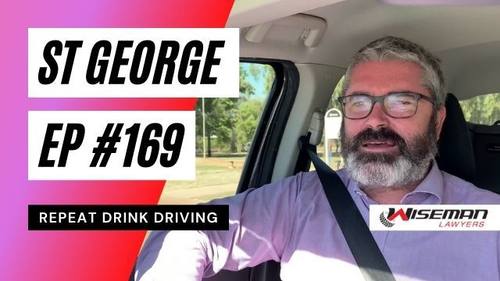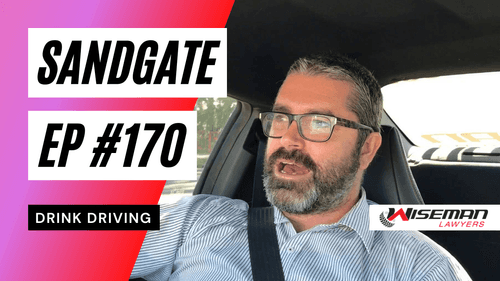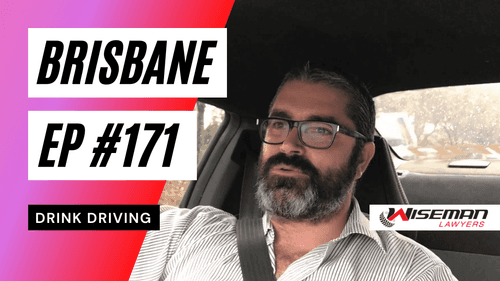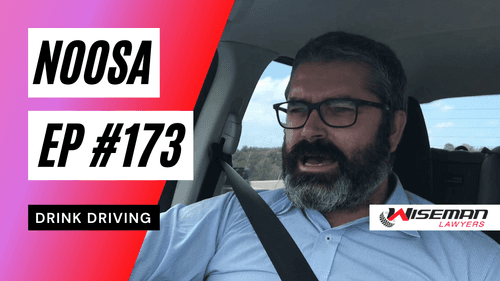

Up until 1 November 2013, if a Police officer wanted to permanently forfeit a person's vehicle, an application needed to be made to the Magistrates Court within the relevant jurisdiction 'within 48 hours after charging the person'.
The Police officer would need to provide Affidavit materials in support of the application, and the vehicle owner would be granted ample time to prepare a defence.
In a nutshell, the onus was upon the Police to file the application, and to prove their case - that the vehicle owner should be stripped of the vehicle, permanently.
In the event that the Magistrate was of the view that permanent forfeiture would be unjust, which was often the case, an order of Community Service could instead be made, along with an order that the vehicle be released to its owner forthwith.
However, on 1 November 2013, Queensland officially became a Communist State.
On 1 November 2013, the relevant legislation was reversed, making permanent forfeiture automatic, and placing the onus upon the vehicle owner themselves to make an application for release to, wait for it - the Police Commissioner.
Yes, you are reading this correctly, as of 1 November 2013, we now live in a State where all that needs to be done by the Police to permanently confiscate a tradesman's 2014 SR5 Hilux, or a retiree's 1978 Holden Monaro, or a disability pensioner's purpose built vehicle, is to hand the driver a piece of paper with the words 'Vehicle Production Notice' written on it.
Further, if the person then goes ahead and pleads guilty to the offence which brought about the notice, any right to apply for release is automatically extinguished.
Now, you may be thinking, well, hoons deserve everything that they get.
Well, yes, but are we really talking about 'hoons' here?
The new legislation permits immediate and unappellable forfeiture automatically upon a plea of guilty, automatically upon the paying of an infringement notice, and automatically upon the referral of a fine to the State Penalties Enforcement Registry, for any fourth 'Type 2' offence within a 5 year period.
Let's Be Clear on What 'Type 2; Offending Actually Is
Despite what Government and some elements of the media will have everyone believe, Type 2 offending is anything but doing burnouts while waiving your fist out the window.
Circumstances of Type 2 offending include the following:
- Forgetting to renew your vehicle's registration
- Forgetting to renew your vehicle's Compulsory Third Party insurance
- Forgetting to renew your licence
- Not knowing your licence has been suspended by the State Penalties Enforcement Registry (SPER) for forgetting to pay a toll.
We are hardly talking the behaviour of menaces on the road.
Who we are actually talking about is:
- The single mother who in a single intercept is charged with a) forgetting to renew her licence; and b) forgetting to pay her registration; and c) forgetting to pay her CTP insurance; and d) 4 years later having her licence suspended by SPER for not paying a toll.
- The elderly man who struggles to remember when his registration is due since registration stickers were phased out, who was assured by the guy at the tyre shop that the new tyres on his Hilux were legal, and who was on a Pacific Island cruise when his licence renewal arrived in the post.
Hardly 'hooning' behaviour.
In fact, I am presently acting for a client who was caught driving on a Demerit Point suspension on the very first day of the suspension.
She had recently moved house and never received the suspension notice.
However, because 3 years ago she forgot to renew her licence and registration, she is now the subject of automatic vehicle forfeiture.
So, 3 years ago:
- She forgot to pay her vehicle's registration (First Type 2 offence); and
- At the same time forgot to pay her vehicle's CTP insurance (Second Type 2 offence); and
- At the same time had forgotten to renew her licence (Third Type 2 offence).
This current instance of driving after having never received a suspension notice amounts to her Fourth Type 2 offence.
I was successful in making an application to the Commissioner for release of my client's vehicle on her behalf.
By operation of law, release from impoundment also equates to release from forfeiture.
That said, had my client have simply entered a plea of guilty to the Drive Demerit Point Suspended charge, her vehicle would have by default been automatically forfeited to the State.
Once forfeited, there are no grounds for rehearing or appeal.
Judge Jury & Executioner
Under the previous model, justice was still able to be served, by way of an application by the Police for an objective decision by an autonomous Magistrate, made independent of the very organisation which was bringing the application in the first place.
However, the Government of the day has seen fit to remove the court process all together.
If the person is being charged with their Fourth Type 2 offence in 5 years, and remember that includes offences such as not paying your registration and forgetting to renew your licence, the vehicle is automatically forfeited to the State upon entering a plea of guilty to the Type 2 offence.
So in other words, if the single mother or the elderly man referred to above were to attend court by themselves, or with a solicitor who is not on top of the recent changed in the law, and simply enter a plea of guilty to their Fourth Type 2 offence in 5 years, their vehicle will immediately become the property of the State upon the utterance of the words 'guilty'.
In fact, it is worse than that.
Simply not paying an infringement notice and letting it default to SPER automatically triggers an irreversible and permanent forfeiture.
Now, the only means of challenging a forfeiture, is by way of an application to the very organisation which is seeking the forfeiture in the first place - the Police.
Instead of the Police being required to make an application to a Magistrate, the owner of the vehicle now needs to make an application to the Police Commissioner.
It is the Police Commissioner who decided who should and should not keep their vehicle.
Sometimes the owner of the vehicle may not even be aware of the infringement or offence.
Well, too bad.
In some parts of the world this is called Communism, in others a Dictatorship.
The online form on the Police website even states - NOTE: Your application will not be processed if it does not contain sufficient information.
And justice for all.
If You Forget to Pay Your Power Bill Should You Lose Your House?
The vast majority of cases where people are losing their vehicles for Type 2 offending are arising from disorganisation only.
Not Hooning, not Drink Driving, not Dangerous Driving - being slack with checking the mail.
People are having their vehicle's crushed for essentially forgetting to pay a bill.
Should your house be demolished whenever you forget to pay a utilities bill?
Right to Security Interest Extinguished
As stated above, it is the owner of the vehicle who must make the application to the Police, not the person charged.
If the owner has no knowledge, obviously no application will be made.
Further, there will be no ground for application to the Police Commissioner once the person charged has already entered a plea of guilty, or paid their infringement notice.
The vehicle is automatically forfeited to the Crown upon a plea of guilty or payment of the infringement or default of the infringement to SPER.
Any application to the Police Commissioner must be made prior to that plea of guilty, or payment or default to SPER.
The legislation even specifically states that 'any right of a person to enforce a security interest against a person other than the State by taking possession of the vehicle is extinguished'.
Regardless of who owns the vehicle, the vehicle essentially disappears off the face of the earth.
The Government in their wisdom have specifically exempted hire car and finance companies from permanent forfeiture, but no other persons or entities.
Appeal to Magistrate's Court Only After Formal Police Commissioner Refusal
The only saving grace afforded by these arbitrary legislative changes is the retained right to appeal to the Magistrates Court, in the event that the owner of the vehicle is 'dissatisfied' or 'aggrieved' with the decision of the Police Commissioner.
That said, the only circumstances under which an appeal can take place is where the Type 2 offence had been adjourned multiple times.
A plea of guilty triggers automatic forfeiture, remember.
I think we can expect the Courts to become bogged down with more and more adjournments as we see more and more appeals waiting to be decided.
Irony: We Had a Police Minister Charged With a 'Type 2' Offence
Queensland had a Police Minister charged with a Type 2 offence in 2012 - charged for not knowing his licence had been suspended by the State Penalties Enforcement Registry after forgetting to pay a fine.
Does that make him a 'hoon' who deserved to have their car crushed?
I don't think so.
Queensland 2017 State Election
To be clear, this article is not a dig at Queensland Police, or the Police Commissioner.
This is a dig at the Queensland Government, and the archaic laws which they continue to introduce, and which they continue to leave in place.
With a likely late 2017 Queensland Election looming, and with the minor parties enjoying more popularity than ever, now may be the time to bring pressure upon your local MP or candidate.
Licence Need Saving?
Wiseman Lawyers specialise in Drug Alcohol & Traffic offences, as well as Vehicle Forfeiture Appeals.
If you face loss of licence or vehicle, imprisonment, or anything in between, we can and will help you today - Call us on 1300 947 352. Whether its getting you a Work Licence or Hardship Licence, minimising the disqualification, or keeping you out of jail, we will get the job done.
Regards
Andrew Wiseman, Wiseman Lawyers

Wiseman TV
Watch over 200 court ride along videos. Access over 10 hours of free content.





